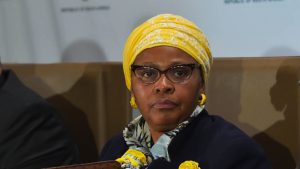The South African Petroleum Industry Association (SAPIA) has warned that if the ongoing rapid petrol price increases continue, this will have a huge negative impact on the distribution of essential goods.
Motorists are going to feel another upcoming high fuel price increase starting next month.
SAPIA has told Parliament that if petrol increases above the current oil regulatory mechanism which sets the basic fuel price, the security of the supply chain in distributing the required products will be threatened.
Industry stakeholders have cited the Russia-Ukraine conflict as one of the factors that are already impacting the petrol price increase. SAPIA Executive Director Fani Tshifularo says there is a need to look at how the current method used in determining petrol price increase can be revised.
“If prices rise to a point where there is a disconnect to what the government is already regulating or using to set the basic fuel price-it means therefore you have got a problem. Therefore it becomes not possible or like very difficult for the companies to buy products at the international market.”
Tshifularo is of view that the petrol increase can have both negative and positive effects.
“If the prices like I mean are not rapid, increasing like more than what we have now-the slate can be positive, and when it is positive, that benefit gets passed on to the motorist. But the slate can also be negative, so it goes both ways.”
Credit card users the hardest hit
The Executive Director at Fuel Retailers Associations Sbonelo Mbata says credit card users to fill up petrol will be the hardest hit. He explains why.
“A transaction on a credit card tracts a 1.75% on the transaction fee. Now on a fixed margin-and you now allow a new method of payment that eats upon the very small margin. Department of Mineral Resources and Energy has never come back to revise the margin to accommodate for the acceptance of credit cards.”
South African Oil and Gas Alliance’s Craig Morkel says this issue of petrol price increases needs a long-term approach.
“So, we need to take a long-term view on these matters and ensure that somehow we don’t fall into the same situation that we find ourselves in with the fuel increase prices.”
Wits University School of Economics and Finance Lumkile Mondi says South Africa remains vulnerable to petrol increases because it does no longer have reserves the way it did during apartheid:






